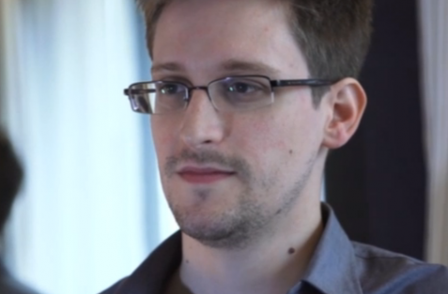
Revelations about Government surveillance first broken by The Guardian have prompted eight of the world's leading technology companies to write an open letter to the US President.
Eight firms, including Facebook, Apple, Google, Microsoft and Twitter, have signed a joint letter warning that in many countries the balance between the need for security and the freedom of the individual had tipped too far in favour of the state.
The move follow the disclosures by the former US intelligence operative Edward Snowden revealing details of the mass surveillance techniques used by America's National Security Agency and Britain's GCHQ.
In their letter, addressed to President Barack Obama and members of the US Congress, the firms said government surveillance efforts should be "clearly restricted by law, proportionate to the risks, transparent and subject to independent oversight".
They said: "We understand that governments have a duty to protect their citizens. But this summer's revelations highlighted the urgent need to reform government surveillance practices worldwide.
"The balance in many countries has tipped too far in favour of the state and away from the rights of the individual."
The release by Mr Snowden of highly classified details concerning intelligence gathering techniques has angered politicians and intelligence agencies in both the US and the UK, with warnings that it was undermining the fight against terrorism.
But Google senior vice president Ken Walker said that the disclosures showed the need for online privacy and freedom of expression to be protected.
"The security of user data is critical here, which why we have all invested so much in encryption and the fight for transparency around government requests for information," he told the BBC Radio 4 Today programme.
"That's undermined when you have wholesale collection of data done in secret without independent oversight by many governments around the world."
Microsoft vice president Brad Smith added: "We obviously all want to live in a secure world but we all want to live in a world as well where security is balanced with personal freedom and privacy.
"We recognise that information technology is a powerful tool for individuals but people won't use technology they don't trust. In our view governments have put that trust at risk. Governments need to help restore it."
The chairman of Britain's parliamentary Intelligence and Security Committee, Sir Malcolm Rifkind acknowledged the need for a public debate but said it was important that intelligence agencies were able to harness technology to combat terrorism.
"I think there is a perfectly reasonable argument for saying that if a human eye is not reading innocent e-mails, then we do have to extract from the vast number of internet communications that tiny number that relate to serious terrorist plots," he told the Today programme.
"So I start off by recognising that in the modern world the terrorists use all the technology available to them. It would be foolish for the intelligence agencies in free societies not to start using that technology.
"However, they can't be allowed to determine themselves what the rules are. They don't at the moment. Government, Parliament has laid down rules."
Email pged@pressgazette.co.uk to point out mistakes, provide story tips or send in a letter for publication on our "Letters Page" blog






